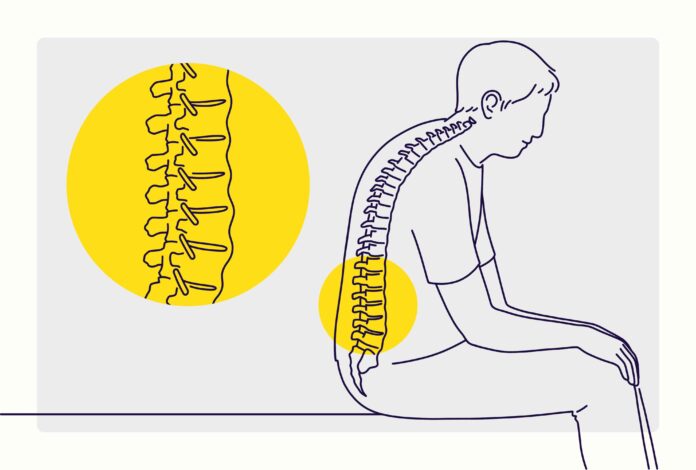Ankylosing spondylitis (AS) is a type of inflammatory arthritis that primarily affects the spine. It is a chronic condition that can lead to pain and stiffness in the back and, in severe cases, can cause the vertebrae to fuse together. Here’s an overview of ankylosing spondylitis, including its symptoms, causes, treatment, and prevention:
Symptoms:
- Back Pain: Persistent, dull pain in the lower back and buttocks is a common early symptom.
- Stiffness: Stiffness, particularly in the morning or after periods of inactivity, is characteristic of AS.
- Reduced Mobility: As the condition progresses, mobility in the spine may be restricted.
- Enthesitis: Inflammation of the sites where ligaments and tendons attach to the bones (entheses), causing pain and swelling.
- Fatigue: Many individuals with AS experience fatigue.
Causes:
- The exact cause of ankylosing spondylitis is unknown, but it is believed to involve a combination of genetic and environmental factors.
- Genetics: The presence of a specific genetic marker called HLA-B27 is strongly associated with an increased risk of developing AS.
- Environmental Factors: Factors such as infections may trigger the onset of AS in genetically predisposed individuals.
Treatment:
- Medications: Nonsteroidal anti-inflammatory drugs (NSAIDs) are commonly used to reduce pain and inflammation.
- Disease-Modifying Antirheumatic Drugs (DMARDs): These medications may be prescribed to modify the course of the disease and slow its progression.
- Biologics: In cases of more severe AS, biologic drugs that target specific components of the immune system may be recommended.
- Physical Therapy: Exercise and physical therapy can help maintain flexibility and improve posture.
- Surgery: In some cases, surgery may be considered to correct deformities or address severe joint damage.
Prevention:
- Currently, there is no known way to prevent ankylosing spondylitis.
- Early diagnosis and appropriate management can help control symptoms and prevent complications.
It’s important for individuals experiencing symptoms suggestive of ankylosing spondylitis to seek medical attention for a proper diagnosis and appropriate management. A rheumatologist, a specialist in arthritis and autoimmune diseases, typically manages the care of individuals with ankylosing spondylitis.

































